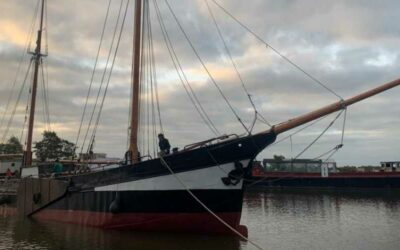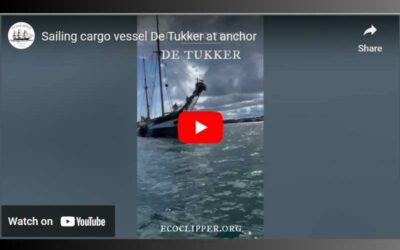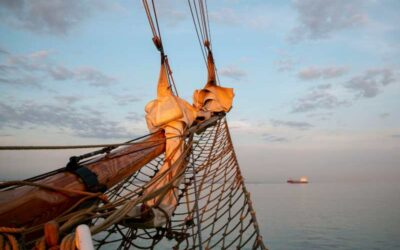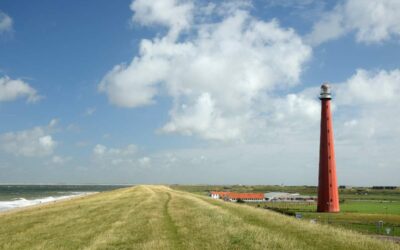Pebble Fest discussion – Can sail power move all our cargo?
On the 7th and 8th November, Pebble magazine held the FutureFest 2020. This festival showcased different individuals and companies influencing sustainable living in the UK.
Jorne Langelaan (EcoClipper) and Anton Mann (Port O’Bristol/Xisto Wines) joined panelist Jack Horner to discuss “Can sail power move all our cargo?”. The topics ranged from types of cargo to modern shipping standards. Here are the five main points taken from the talk.
1.
Buy less, buy local
90% international cargo is transported by sea. There are around 50,000 merchant ships to do this, all of which use fossil fuels. Shipping contributes to 3% of global carbon emissions, 9% of global sulphurous oxide emissions and 18-30% of global nitrous oxide emissions. For one sector, these are huge numbers.
Products are produced abroad because it is cheaper. Even shipping is cheap, due to containerisation and economies of scale. Compared to air freight or road transport, shipping by sea is the most efficient. Of course, this all makes the above statistics more shocking. How do we reduce these numbers?
The 90% of international cargo which is transported by sea can be reduced by transporting less and increasing local production. This leaves the 10-15% of products that really need to be transported from abroad for example wine, olive oil, coffee, tea, cacao. These products can be transported by emission-free vessels such as sailing ships.
2.
Routes and timings
One of the main arguments against returning to sail power is the time it takes to transport the goods. From Porto, Portugal to Bristol it takes about two weeks by road, and two weeks by sailing vessel – so there’s barely a difference. There can still be hold-ups for road transport as well as a sailing ship.
However, container ships take 30-40 days travelling from Asia to Europe. In a sailing ship its around 65-70 days and as there would stops at multiple ports it probably would take a year. So it really depends where you are shipping.
These routes and timings can also be used to reduce emissions elsewhere. A sailing vessel, especially those like EcoClipper ships, are multifaceted as they will take passengers and trainees too. This helps with revenue and will give people an option to travel emission-free.
Anton mentions that for Port O’Bristol the products they ship are made as locally as possible to the port, to reduce transporting goods by truck for miles on land. They encourage customers to collect goods from the ship in port by bicycle to continue to reduce emissions in the entire process.
3.
Impact and reality
Currently there is room to scale up the sail cargo industry. With routes like Porto to Bristol, where ships can work with nature and the natural meteorological circumstances, many more could be explored. It’s about being flexible around the ports you can use and creating a solid shipping route to begin with.
In the last 10 years, sail cargo vessels have increased, as has demand (see The Potential for Sail Cargo and Sail Travel). Continuing this growth, as well as scaling up the size of the vessel, is possible and EcoClipper plans to be a part of this solution.
Of course, there is a transition period, it’s not going to happen overnight. The most effective thing to do now is buy less, shop local and purchase goods shipped by sail!
4.
Shipping and innovations
In an age of innovations and technology, it seems shocking that the shipping industry has not moved from fossil fuels to other forms of power. But the shipping industry is notoriously conservative, and innovations are slow. Many shipowners are not in direct contact with the consumer, and as there are meager rules and pressures from governments, there is no incentive to change.
However, innovations are being tested. For example, kite sails contribute to an average of 10% fuel reduction, at best 50%. Which is good, but we need a larger shift. 10-50% fuel reduction is not enough now, we are at a stage where completely emission-free shipping must be adopted. Needless to say, this does require a culture change too!
5.
Community and transparency
Sail cargo is about people. It is about the community created from producers, shippers, sailing crew and consumers. When products come into Bristol, Anton has bottled wine from barrels on the dockside in front of the public. When ships come into some ports, local sailmakers and shipwrights have work. It is also not a marketing ploy; sail cargo is genuinely used by companies who want to reduce shipping emissions and help those in the process.
Anton Mann – Port O’Bristol/Xisto Wines – Anton has been using sailing ships to transport wines from Portugal to Bristol for around 10 years, with co-founder Lela McTernan. Port O’Bristol creates relationships with local wine artisans in Portugal and uses a circular economy to reduce waste in the entire process from wine making, shipping to selling. https://xistowines.co.uk/
Anton contributed to the Sail Cargo market overview which you can access by signing up to the EcoClipper newsletter.
Pebble magazine – For more information on Pebble magazine and the FutureFest check out the website: https://pebblemag.com/




